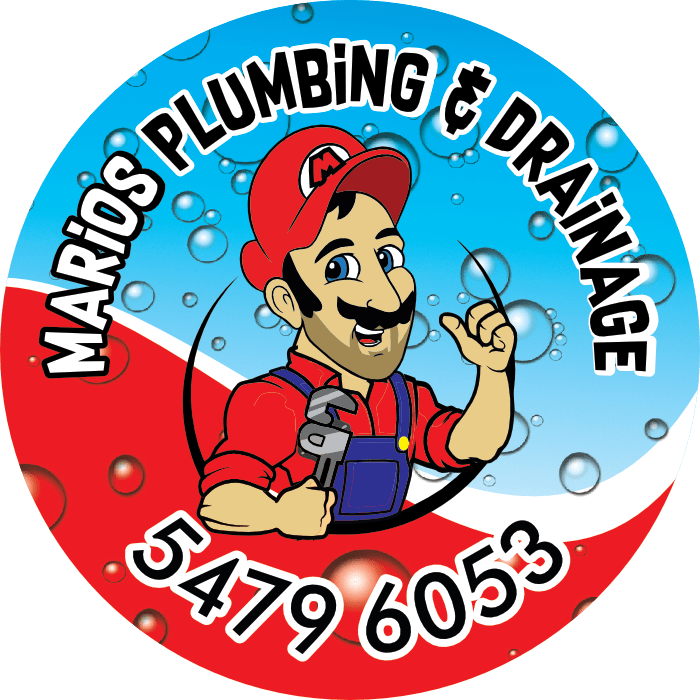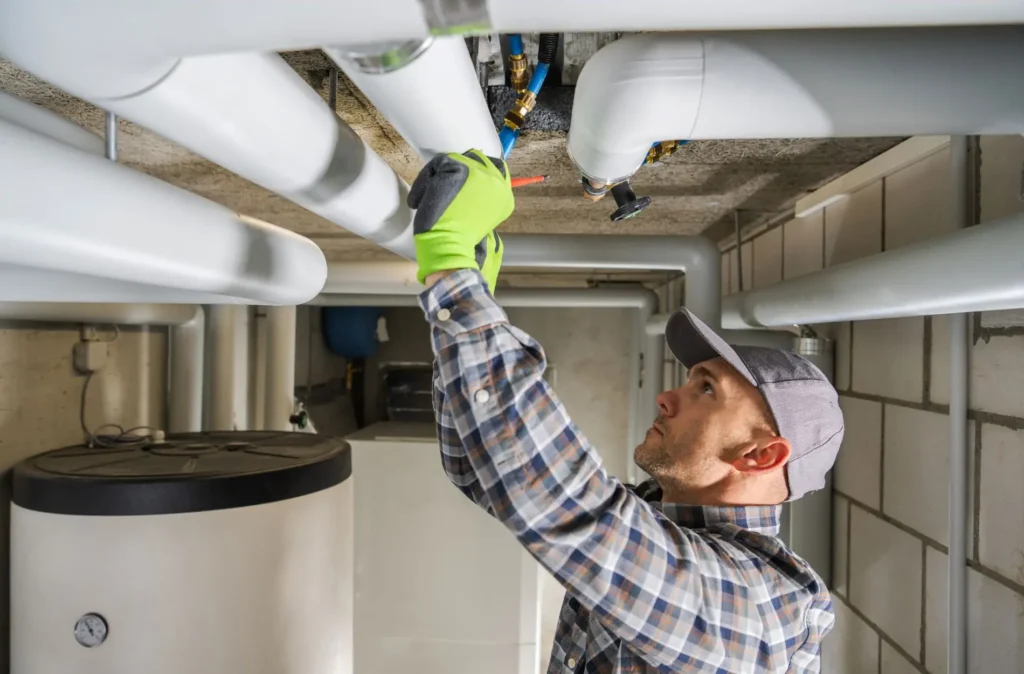G’day, mate! If you’re on the hunt for a new home in Australia, you might be feeling a mix of excitement and nervousness. It’s a big step, after all. But before you sign on the dotted line, there’s one thing you absolutely can’t skip: a professional plumbing inspection. Trust me, it could save you from a world of trouble down the track.
Let’s dive into why a plumbing inspection is so important and how it can protect your hard-earned cash and peace of mind.
1. Uncover Hidden Plumbing Nasties
Picture this: you’ve just moved into your new place, and suddenly you’re dealing with a leaky pipe or a blocked drain. Not exactly the housewarming party you had in mind, right?
A professional plumber can spot potential issues that might be lurking beneath the surface. They’ll check for things like:
- Leaky pipes
- Corroded plumbing
- Blocked drains
- Faulty water heaters
By catching these problems early, you can avoid costly repairs and water damage down the line. Plus, you’ll have a better idea of what you’re really getting into with your new home.
2. Make Sure Everything’s Working Properly
When you’re checking out a potential new home, you might turn on a tap or flush a toilet to see if it works. But a pro plumber will do a much more thorough job.
They’ll test:
- All taps and showers
- Toilets
- Dishwashers and washing machines
- Water pressure in different parts of the house
This way, you can be confident that everything’s in good nick before you move in.
3. Spot Even the Tiniest Leaks
Even a small drip can cause big problems over time. A professional inspection can catch leaks that you might not notice during a quick walk-through.
These sneaky leaks can:
- Waste water and bump up your bills
- Cause water damage to walls, floors, and ceilings
- Lead to mould growth (which is bad news for your health)
A plumber has the tools and know-how to find these hidden leaks before they become major headaches.
4. Check Your Water Pressure
Have you ever tried to shower under a trickle of water? Not fun, right? Low water pressure can be a real pain, especially if you’ve got a big family or love your long showers.
A plumbing inspection will check the water pressure throughout the house. This is super important if you’re planning to install things like:
- A fancy rainhead shower
- A dishwasher
- A washing machine
You want to make sure you’ve got enough oomph in your pipes to handle all your water needs.
5. Give Your Water Heater and Drains a Once-Over
Your water heater and drainage systems are the unsung heroes of your home’s plumbing. A good inspection will take a close look at these crucial components.
For the water heater, they’ll check:
- Its age and condition
- If it’s the right size for your needs
- Any signs of leaks or corrosion
When it comes to drains, they’ll look for:
- Any blockages or slow drainage
- Signs of tree root intrusion in the main sewer line
- The overall condition of the pipes
6. Save You Time and Money in the Long Run
I know what you’re thinking – “Another expense? Really?” But trust me, the cost of an inspection is peanuts compared to what you might have to shell out for major plumbing repairs down the track.
Think about it:
- A small leak could turn into a flooded basement
- A partially blocked drain could become a full-on sewage backup
- An old water heater might conk out just when you need it most
By catching these issues early, you can plan for repairs or replacements on your terms, not when disaster strikes.
7. Give You Bargaining Power
Here’s where things get interesting. If the inspection turns up any issues, you’ve got a few options:
- Ask the seller to fix the problems before you buy
- Negotiate a lower price to cover the cost of repairs
- Walk away if the problems are too big to handle
Either way, you’re in a much stronger position when you know exactly what you’re dealing with.
8. Make Sure You’re Up to Code
Plumbing codes might not be the most exciting topic, but they’re there to keep you safe. An inspection will make sure the home’s plumbing meets all the relevant health and safety standards.
This is especially important if:
- The home is older
- There have been DIY renovations
- You’re planning to make changes to the plumbing yourself
9. Prevent Mould Before It Starts
Mould is like that annoying relative who overstays their welcome – once it’s in, it’s hard to get rid of. And it can be seriously bad for your health.
A plumbing inspection can spot potential moisture issues before they lead to mould growth. This includes checking for:
- Leaks in walls or under floors
- Poor ventilation in bathrooms and laundries
- Signs of past water damage
10. Protect Your Investment
Your home is probably the biggest investment you’ll ever make. A well-maintained plumbing system can help protect that investment by:
- Preventing costly water damage
- Keeping your home in good condition
- Making it easier to sell in the future if you decide to move
Real-Life Example: The Hidden Leak That Almost Ruined a Dream Home
Let me tell you about my mate Sarah from Brisbane. She fell in love with a charming Queenslander and was all set to buy it. On a whim, she decided to get a plumbing inspection.
Good thing she did! The inspector found a hidden leak in the bathroom wall that had been slowly rotting away the floorboards. If left unchecked, it could have caused the bathtub to crash through the floor!
Sarah was able to negotiate with the seller to fix the problem before she moved in. Now she’s happily settled in her dream home, without any nasty surprises.
FAQs About Plumbing Inspections
- How much does a plumbing inspection cost?
The cost can vary depending on the size of the home and the extent of the inspection. In Australia, you might expect to pay anywhere from $200 to $500. It’s a small price to pay for peace of mind! - How long does a plumbing inspection take?
Typically, a thorough inspection will take 2-3 hours for an average-sized home. It might take longer for larger properties or if the plumber needs to use special equipment like cameras to inspect pipes. - Can I do a plumbing inspection myself?
While you can certainly do a basic check yourself, a professional plumber has the tools and expertise to spot issues that you might miss. They can also provide a detailed report that can be useful for negotiations or future planning. - What if the inspection finds major problems?
If significant issues are found, you have a few options. You can ask the seller to fix the problems, negotiate a lower price, or walk away from the deal if the problems are too extensive. It’s always better to know about these issues before you buy. - How often should I have my plumbing inspected after I buy a home?
It’s a good idea to have your plumbing inspected every 2-3 years, or more frequently if you have an older home. Regular inspections can catch small problems before they become big ones. - Will a plumbing inspection cover outdoor plumbing as well?
A comprehensive inspection should include outdoor plumbing, such as garden taps, irrigation systems, and the main water line. Make sure to clarify this with the inspector before they start.
Wrapping It Up
Look, buying a home is exciting, but it’s also a big responsibility. A professional plumbing inspection is one of those things that might seem like a hassle now, but can save you a world of trouble down the track.
Think of it as an insurance policy for your new home. It gives you peace of mind, protects your investment, and might even save you some serious cash in the long run.
So before you sign on the dotted line for your new Aussie dream home, make sure you get a thorough plumbing inspection. Your future self (and your wallet) will thank you!
Remember, when it comes to plumbing, it’s always better to be safe than sorry. Happy house hunting, mates!


